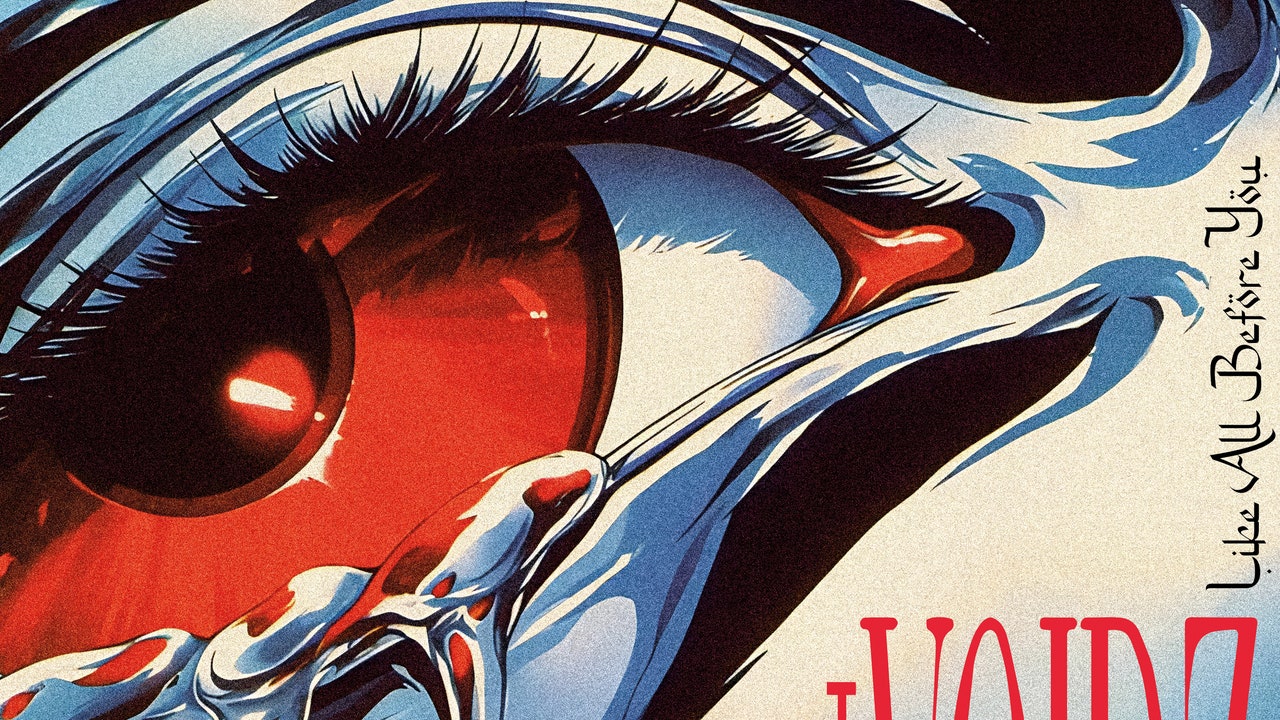Julian Casablancas is searching. Since his last album with the Voidz, 2018’s Virtue, the Strokes frontman has been occupied with the deepest questions of our time: the limits of political philosophy, the ethics of artificial intelligence, and what school his two young sons should attend. In late 2020, the singer partnered with Rolling Stone for an interview series called S.O.S. — Earth Is a Mess, where he quizzed journalists, philosophers, and former presidential candidate Andrew Yang about democracy and freedom. Despite his attempts to earnestly engage his subjects on comparative economics and the psychology of Trump voters, the surrounding scenery and visual effects—public intellectual Noam Chomsky beamed in as a headless, a low-resolution color map, for example, with Casablancas washed in fuchsia and forest green—make the series nearly impossible to take seriously. On Like All Before You, his third album with the Voidz, Casablancas depicts his quest for a guru through the mediated sounds of chintzy synthesizers and vocoder vocals—the problem is, it seems even he can’t decide if he’s joking.
The music of the Voidz exists on a post-apocalyptic, retro-futuristic dance floor. On Virtue, this came in the form of what Casablancas called “prison jazz,” which mostly translated to a persecution complex shouted over clipped guitar riffs and obnoxiously syncopated synths. On Like All Before You, Casablancas has moved past martyrdom (though not past self-aggrandizement, waxing nostalgic about his “lounge lizard” days on the Metallica-cover-band-esque “Prophecy of the Dragon”) and onto more metaphysical matters. He wants to find a leader to reveal to him some universal truth, though he can’t really decide who or what that is. On “Squarewave,” he looks to the transcendental meditation founder Maharishi Mahesh Yogi; on “Prophecy,” the Buddhist text Lotus Sutra might provide the skeleton key; by “Spectral Analysis,” he’s wooed by the doomed Heaven’s Gate cult.
The brief references to and even quicker retreats from these heady concepts wear thin by halfway through the album’s tracklist, and that’s before he starts speaking in Latin on “When Will the Time of These Bastards End.” It’s hard to know how serious Casablancas’ political musings are—his lyrics about First Amendment rights and stolen votes—when those remarks follow a line like “I’m gonna blast her with my Stratocaster.” There are moments where his sheepish humor shines, like when he’s imagining the rush of recognizing a friend in a firing squad on “Flexorcist.” But taken as a whole, it sounds like spiritual whiplash.
